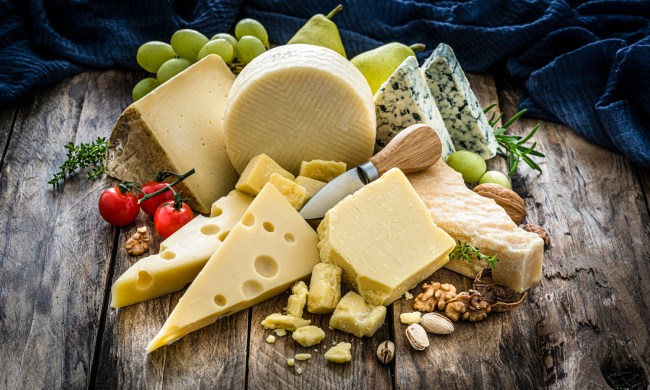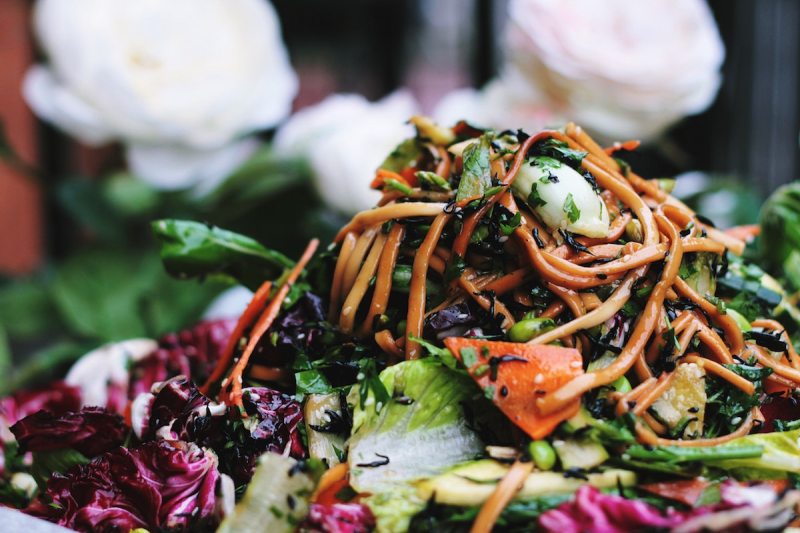
There are a lot of debates within the world of diets of nutrition: Are low-carb diets or low-fat diets better for weight loss? Does saturated fat increase the risk of heart disease or not? Do foods high in cholesterol increase your cholesterol levels? Is red meat healthy or should it be eaten sparingly? That said, there are a couple of things most nutrition experts and wellness gurus agree on: It’s important to eat vegetables. Therefore, a diet that puts vegetables and plants as the central tenet of the diet must be at least somewhat healthy—and this is precisely where plant-based diets come into play.
It used to be that vegan diets and vegetarian diets were the only diets that excluded animal products and focused on eating plants, but in recent years, “plant-based diets” have entered the scene. But what exactly is meant by a plant-based diet? Is it different from a vegan or vegetarian diet? Can you eat only plants on a plant-based diet? Keep reading to find out everything you need to know about plant-based diets, the benefits of plant-based diets, and what you can and can’t eat on plant-based diets to see if following a plant-based diet may be something you want to try.
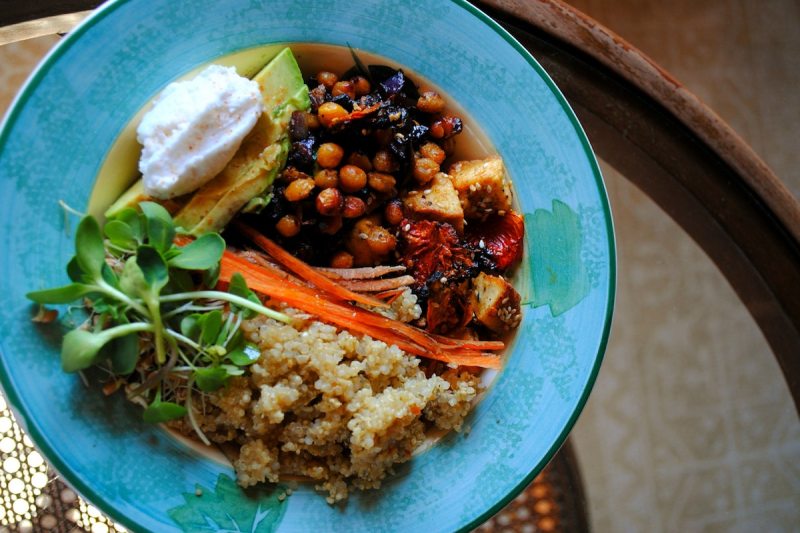
What is a plant-based diet?
“Plant-based” is a broad term used to describe any diet that is composed of mostly but not necessarily exclusively, plant foods. In other words, vegan diets and vegetarian diets fall under the umbrella of plant-based diets, but there is also some flexibility to include some amount of animal products as well. Plant-based diets emphasize vegetables, fruits, seeds, grains, legumes, and nuts. Foods that are grown or cultivated are meant to be the centerpiece of every meal, with the option to have meat, dairy products, eggs, poultry, fish, seafood, and animal-derived ingredients as accouterments. In other words, animal products aren’t necessarily prohibited, but they are to be limited.
There are no strict definitions or exclusions with a general plant-based diet. Of course, within the umbrella of plant-based diets, there are more restrictive specific diets, such as the vegan diet, which excludes all animal products entirely. On the other end of the spectrum, the Mediterranean diet can also be considered a plant-based diet because the true emphasis is on plant-based foods even though fish and poultry are consumed. When following a plant-based diet, your goal is simply to focus on eating mostly plant-based foods.
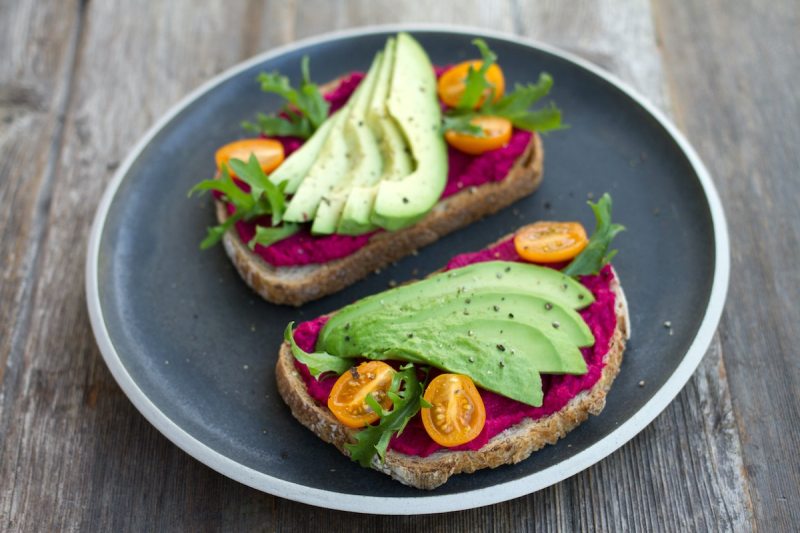
What are the benefits of a plant-based diet?
Plant-based diets are often some of the healthiest diets people follow because the diet quality and nutrient intake tend to be superior to even that followed by vegans, for example, because there are no absolute restrictions, which can lead to deficiencies. Also, again, the emphasis is on eating whole, natural, plant-based foods and limiting processed foods.
The benefits of a plant-based diet mimic those of vegan or vegetarian diets. Many people successfully lose significant weight on plant-based diets because foods like vegetables, legumes, and fruits are quite filling but are not particularly caloric. As such, the caloric density of the food is low, so you can eat a large volume of food without consuming many calories.
Plant-based diets are also high in micronutrients and antioxidants, so they can reduce the risk of diseases such as cancer, heart disease, type 2 diabetes, and hypertension. The high fiber content of plant-based diets supports healthy digestion and is associated with lower cholesterol levels and body mass index (BMI). Plant-based diets are also better for the environment and consume fewer natural resources.
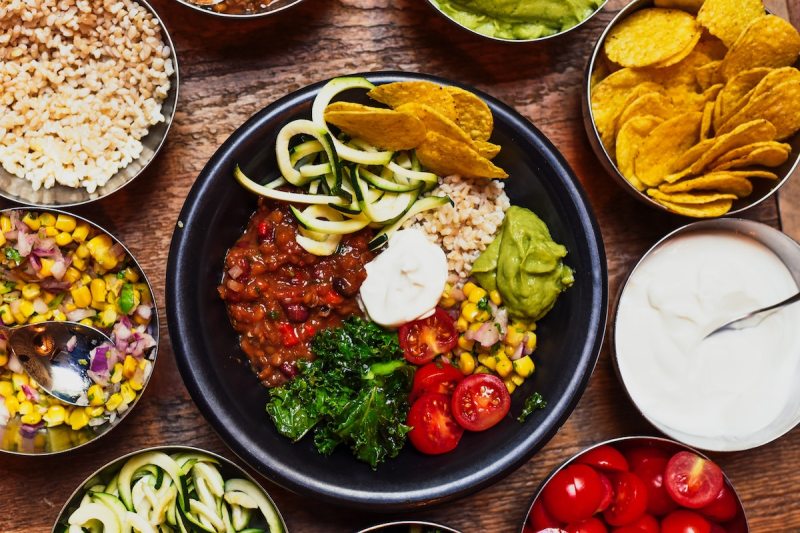
What foods can you eat on a plant-based diet?
The best part about a plant-based diet is that you can theoretically eat anything you want so long as plant foods are the center of your meal. You can still technically eat meat, poultry, eggs, fish, and dairy (so long as you aren’t following a specific, stricter iteration of a plant-based diet like a vegetarian diet), though the frequency or amount of these foods will pale in comparison to the plant foods you eat. That said, these are the primary foods to emphasize when following a plant-based diet:
- Vegetables: Spinach, kale, carrots, Swiss chard, broccoli, zucchini, cucumbers, onions, cauliflower, asparagus, sweet potatoes, beets, squash, onions, etc.
- Fruits: Pears, apples, melons, oranges, apricots, peaches, berries, bananas, pomegranates, kiwi, coconut, tomatoes, dates, figs, etc.
- Whole grains: Oats, whole wheat, barley, brown rice, quinoa, teff, farro, etc.
- Legumes: Soy, beans, lentils, peas, peanuts, etc.
- Nuts and seeds: Almonds, pistachios, walnuts, cashews, pecans, chia seeds, flaxseeds, pumpkin seeds, sesame seeds, hemp seeds, sunflower seeds, macadamia nuts, Brazil nuts, etc.
- Healthy fats and oils: Olive oil, avocados, flaxseed oil, coconut oil, etc.
- Herbs and spices: Basil, thyme, pepper, cinnamon, clove, nutmeg, ginger, salt, rosemary, cumin, chili powder, etc.
- Healthy beverages: Water, tea (herbal tea, green tea, black tea, etc.), red wine, coffee, etc.
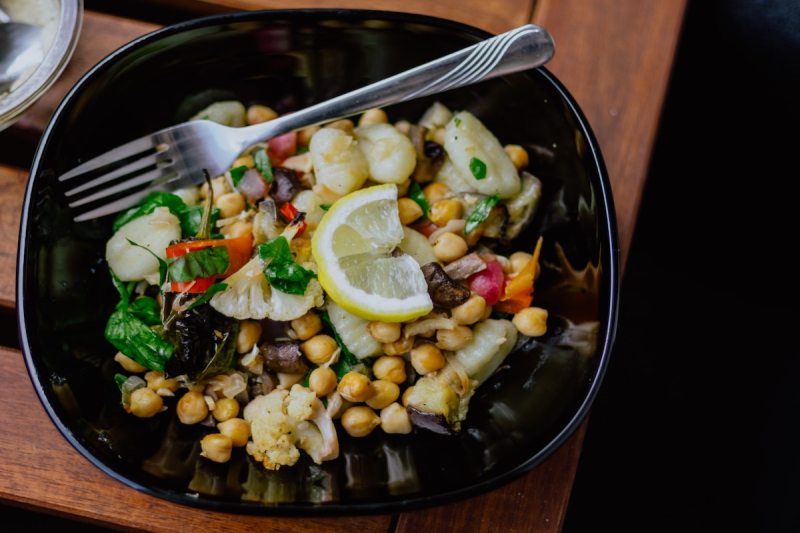
What foods aren’t permitted on a plant-based diet?
The cornerstone of plant-based diets is to make natural, plant-based foods the focus of your meals and snacks. Processed foods (even plant-based ones) are to be limited, along with animal products. However, these foods aren’t prohibited or banned entirely; you have the latitude to eat them in moderation as you see fit as long as unprocessed plant-based foods are your mainstay. Accordingly, plant-based diets limit the following:
- Meat: Beef, pork, veal, lamb, venison, bison, etc.
- Fish and seafood: Salmon, trout, cod, sardines, tuna, mackerel, lobster, crab, scallops, shrimp, mussels, clams, squid, etc.
- Poultry: Chicken, turkey, duck, quail, etc.
- Eggs: Chicken eggs, turkey eggs, duck eggs, quail eggs, etc.
- Dairy products: Cow’s milk, goat’s milk, sheep’s milk, butter, yogurt, cheese, ice cream, cream, cottage cheese, etc.
- Refined grains: While bread, crackers, rice cakes, white pasta, sugary cereals, oatmeal, white bagels, etc.
- Processed sweets: Cookies, pies, pastries, doughnuts, jellies, jams, pudding, sweetened juice, soda, etc.
- Fried foods: French fries, onion rings, etc.
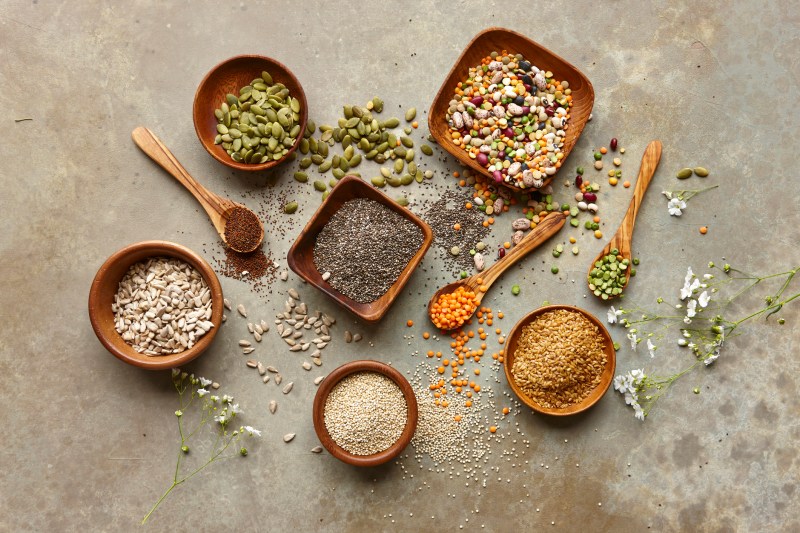
Can you eat a plant-based diet in the long term?
Yes, a well-planned plant-based diet can be a safe and healthy choice for the long term, with some important considerations. The potential benefits, such as lower risk of heart disease, type 2 diabetes, and certain cancers compared to typical Western diets high in animal products, make this a smart choice for a long-term diet. Also, it’s a good plan for weight management, since a plant-based diet is naturally rich in fiber and lower in calories.
Some considerations for the long term include nutrient deficiencies, as stricter diets require careful planning to avoid deficiencies in essential nutrients like vitamin B12, iron, calcium, and iodine, which are typically more abundant in animal sources. You also need to consider variety and balance and be sure to consume a diverse range of fruits, vegetables, whole grains, legumes, nuts, and seeds, which are crucial to ensure a well-rounded intake of essential nutrients.

Sample plant-based diet meal plan
Curious about what a day of eating might look like on a plant-based diet? Below, we share a sample plant-based meal plan:
- Breakfast: Overnight oats made with almond milk, chia seeds, flax seeds, hemp protein powder, blueberries, cinnamon, and unsweetened coconut flakes.
- Lunch: Hummus with whole-grain crackers, carrots, pepper strips, celery, and cucumbers; red grapes
- Snack: Greek yogurt with low-sugar granola
- Dinner: Grilled tofu over cauliflower rice, baked sweet potato, spinach salad
- Snack: Banana with almond butter



